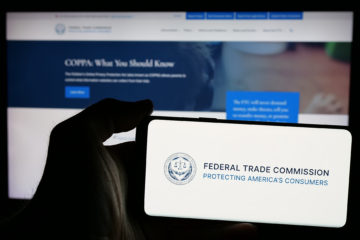In President Biden’s Fiscal Year 2025 budget, one of the most controversial proposals is a $389 million increase for the Federal Trade Commission (FTC), representing an 11% boost. Critics argue that the FTC, under Chair Lina Khan, is mismanaging resources and pursuing a radical agenda that deviates from traditional antitrust enforcement. Market Institute President Charles Sauer delves into the reasons behind this criticism and the implications of the proposed budget increase.
He writes:
“One of the most outrageous items in President Biden’s Fiscal Year 2025 budget is his proposed $389 million raise for the Federal Trade Commission (FTC), an 11% increase. It is hard to think of a federal agency less deserving of a budget increase than the FTC. Under the leadership of Chair Lina Khan, the FTC has wasted taxpayer money on lawsuits that the agency’s professional staff has advised against bringing due to a low chance of success. This does not bother Chair Khan, because her goal is not to simply enforce antitrust laws, but to transform antirust into a tool to reshape the American economy.
As one (of many) disgruntled FTC staffers said, “I’m not sure being successful or doing things well is a shared goal; as the Chair wants to show we can’t meet our mission mandate without legislative change.” The quote comes from a House Judiciary Committee report detailing Khan’s mismanagement of the agency based on subpoenaed documents and transcribed interviews. The report shows Khan has alienated the professional FTC staff, ignoring their advice to instead pursue her personal agenda. No wonder the FTC has gone from being one of the most highly ranked federal agencies to one of the lowest.
Khan has latched onto the FTC’s statutory mandate to prevent “unfair” business practices in order to justify giving the FTC power to question any business action that strikes any FTC commissioner as “unfair.” She and her counterpart Jonathan Kanter from the Antitrust Division of the Justice Department (which also received an unjustifiable budget increase from President Biden) revised the merger guidelines designed to help determine when to bring a suit challenging a merger or acquisition. The new guidelines are so broad that they could be used to justify the government challenging almost every proposed merger or acquisition.
The FTC has also added questions regarding how mergers would affect workers to their questionnaire for companies seeking approval for a merger from the agency. Advancing the interests of workers (which to progressives means advancing the interests of union officials) is not a part of traditional antitrust, yet is a pillar of Khan’s “holistic” antitrust policy. The possibility that a merger or acquisition will be challenged by the federal government will serve as a disincentive for companies to attempt a merger or acquisition that would benefit the company’s workers, shareholders, and consumers. This is because, even if the company eventually ends up obtaining the government’s approval of the merger, the company will still be forced to spend time and money defending the merger before the FTC or the courts. These costs will make many otherwise beneficial mergers unprofitable. This has been referred to as the “merger tax.”
Khan’s FTC not only brings cases not grounded in settled antitrust policies, but which also tend to ignore facts. One example is the FTC’s suit to stop Meta from acquiring virtual reality company Within Unlimited. Meta wanted to acquire the company because it wanted to feature Within Unlimited’s popular fitness app Supernatural on its virtual reality platform. The FTC argued that denying this acquisition would enhance competition because it would force Meta to develop its own virtual reality fitness app. However, Meta did try to develop a fitness app, but after it failed to compete with Supernatural, Meta decided to not waste more resources on the project and instead sought a merger with a company that knows how to develop virtual reality apps.”


